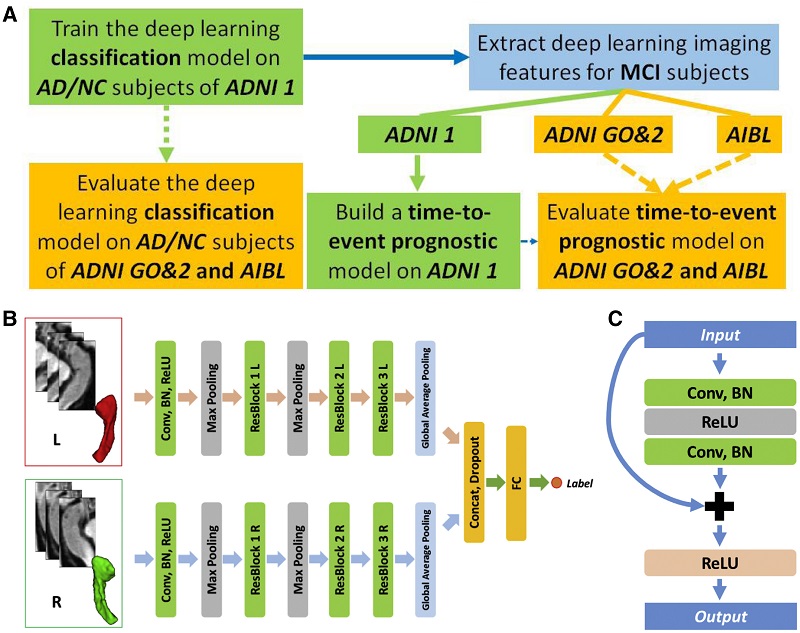Deep learning of structure MRI data for early prediction of Alzheimer's disease dementia
It is challenging at baseline to predict when and which individuals who meet criteria for mild cognitive impairment (MCI) will ultimately progress to Alzheimer's disease (AD) dementia. We have developed a deep learning method to predict MCI subjects' progression to AD dementia in a time-to-event analysis setting. Our method provides a cost effective and accurate means for prognosis and potentially to facilitate enrollment in clinical trials with individuals likely to progress within a specific temporal period [20]. We have also further demonstrated that recurrent neural networks (RNNs) could be adopted to learn informative representation and temporal dynamics of longitudinal cognitive measures of individual subjects and combine them with baseline hippocampal MRI for improving prognosis of AD dementia progression [21].

Schematic illustration of the deep learning–based AD prognosis. (A) A general flowchart for training and validating the prognostic model. (B) Deep network architecture for data-driven hippocampus-based AD diagnosis. (C) Residual block. Abbreviations: ADNI, Alzheimer's Disease Neuroimaging Initiative; AIBL, Australian Imaging Biomarkers and Lifestyle Study of Aging; L, left hippocampus; R, right hippocampus; NC, cognitively normal; AD, Alzheimer's disease; MCI, mild cognitive impairment; Conv, convolutional layer; BN, batch normalization; ReLU, rectified linear unit; ResBlock, residual block; Concat, concatenation layer; FC, fully connected layer.

